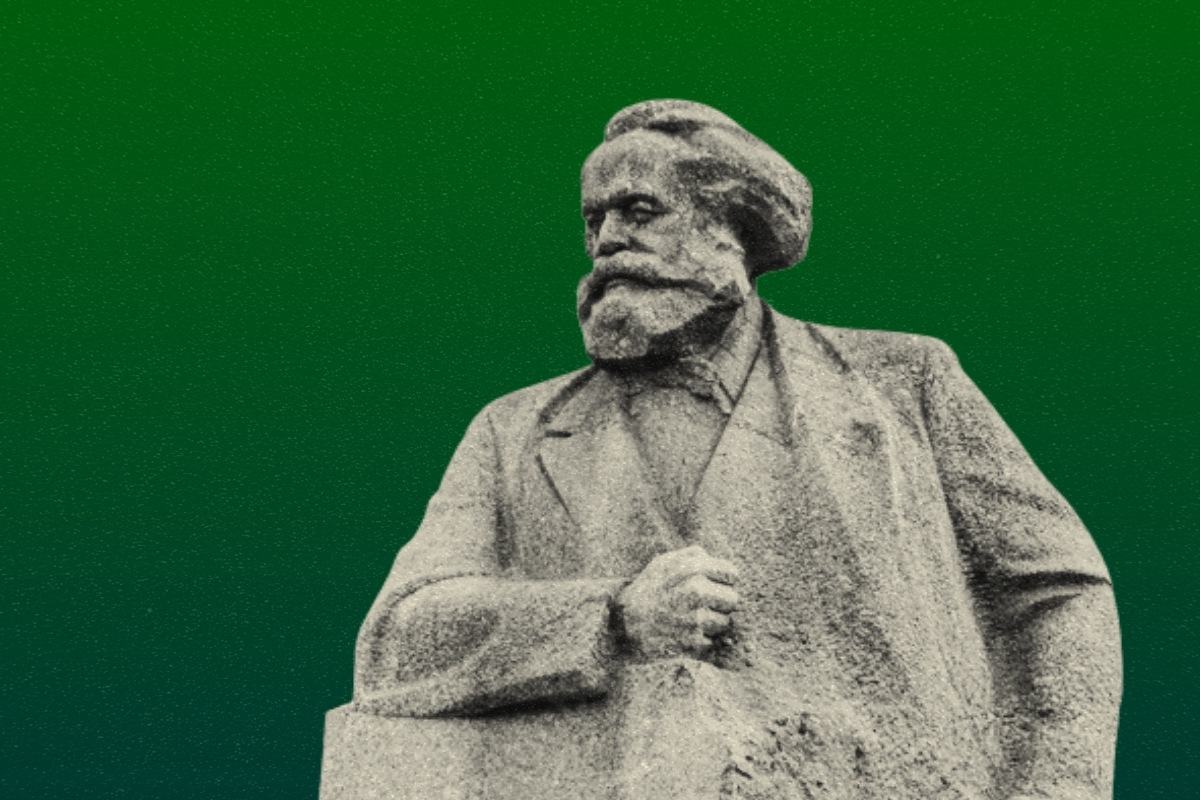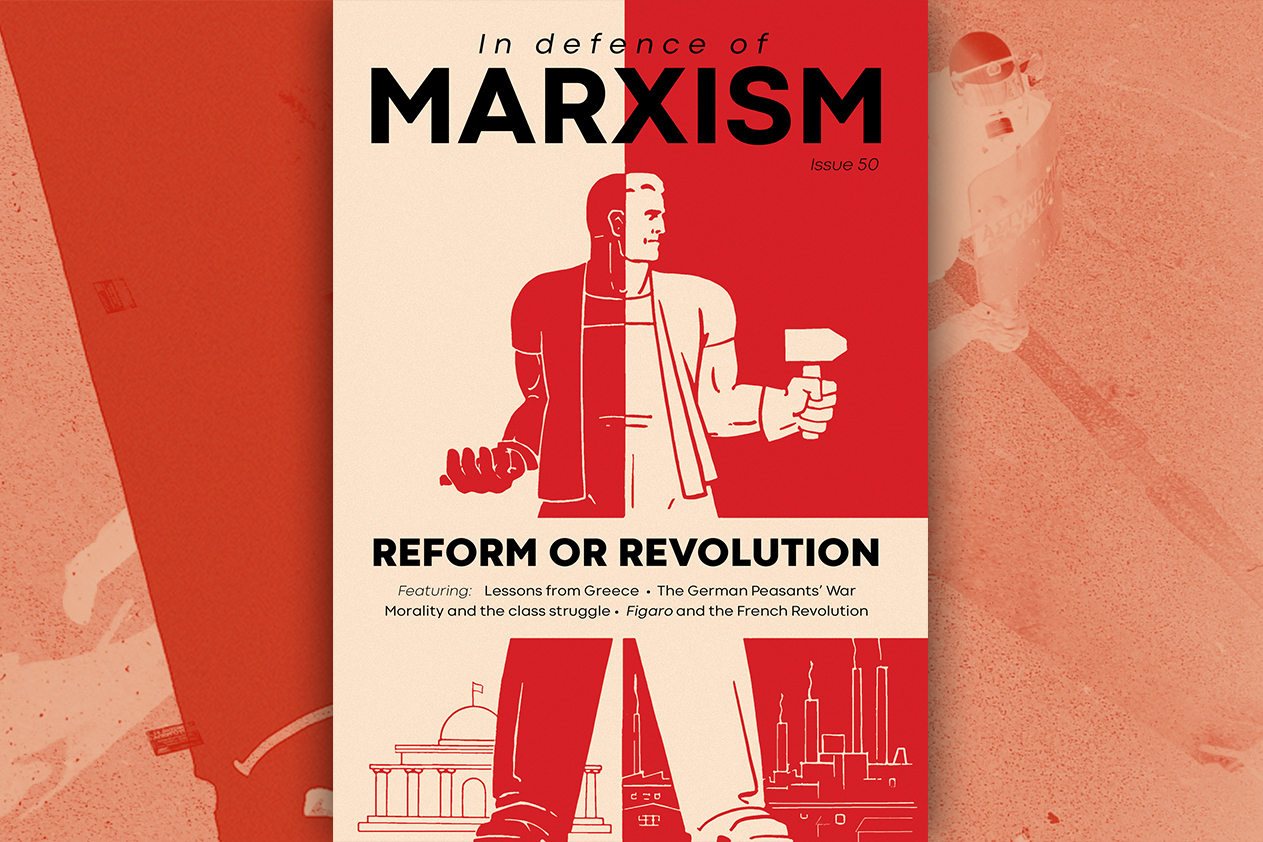What Is Marxism?
Laurie O’Connel
Across the world, we are seeing more and more revolutionary movements open up year upon year. A new generation of radical workers and youth are turning towards the ideas of Marxism as a result.
The great Russian revolutionary, Vladimir Ilyich Lenin, remarked of the period immediately following the 1905 Revolution:
“When the masses are digesting a new and exceptionally rich experience of direct revolutionary struggle, the theoretical struggle for a revolutionary outlook, i.e., for revolutionary Marxism, becomes the watchword of the day.”
Today, with the same process taking place in country after country, the ideas of revolutionary Marxism have more relevance than ever.
Scientific socialism
Many people would agree that we need a revolution. The system is clearly broken. Something has to shift. But for most, it is not obvious why that revolutionary movement would need such a firm theoretical grounding.

The working class is the strongest force in the world, and when it is angry and on the streets en masse, it can topple any government. But to replace one social system with another, to place a new class, the working class, in conscious control of society, a deeper and more true understanding is required.
Unlike the revolutions of the past, which simply replaced one ruling class with another, the socialist revolution has to mean the conscious planning of production to meet the needs of society as a whole. The socialist revolution has to abolish short-sighted interests, prejudices and assumptions.
To do that, we need our own revolutionary philosophy, a theoretical framework which allows us to understand the world’s contradictions and thus direct our practical activity.
Marxism takes as its starting point the idea that communism is not just a great idea, but (to use the words of Marx) the “riddle of history solved”: the culmination of processes that are really taking place in the world; processes which can be analysed and understood. It is for this reason that Marxism is often described as ‘scientific socialism’.
What Is Marxism?
Learning Marxist theory is thus essential for any communist. But it can be hard to find a place to start, especially when theory is so deep and rich, with an abundance of ‘classic texts’ – all of which illuminate parts of the full picture.
It is for this reason that What Is Marxism? was produced.
View this post on Instagram
First published as part of a series on Education for Socialists in the early 2000s, it was republished in successive editions as a book in 2007 and 2013.
The book aims to give those brand new to the ideas of Marxism the tools to begin to get to grips with its most basic ideas, and whet their appetite for further study.
With more people coming towards the ideas of communism, the publication of an even more up-to-date edition this year is timely.
“In essence,” Rob Sewell explains in the new edition of What Is Marxism? “Marxism is a synthesis of the most advanced ideas of Marx’s time: English classical economics, German Hegelian philosophy, and French socialism.”
“In their totality, these ideas provide a fully worked-out theoretical basis for the struggle of the working class to attain a higher form of human society – socialism.
“The component parts of Marxism fall under three main headings, corresponding broadly to philosophy, social history, and economics – dialectical materialism, historical materialism, and Marxist economics.”
The book features chapters on each, alongside extracts from Marx, Engels, Lenin and Trotsky.
With its simple, accessible, and enjoyable style, the publication of What Is Marxism? follows in the footsteps of Marx, who always wrote first and foremost for the workers, rather than ivory-tower academics.
Although beginning to study anything for the first time is hard, and requires perseverance, this book is one of the best tools any new communist can have.
As the book promises:
“Once the initial effort is made to come to grips with unfamiliar and new ideas, the theories of Marxism will be found to be basically straight-forward and simple. It will open your eyes to a new world, where the irrational workings of class society become clear. Once the basic concepts of Marxism are conquered, it introduces us to a whole new outlook on politics, the class struggle, and, in fact, every aspect of life.
“Above all, Marxism is a guide to action. It theoretically prepares us for the struggle for a new society. These ideas will become the property of millions as the scientific programme of socialism connects with the revolutionary movement of the masses. In the famous words of Marx: “Philosophers have only interpreted the world in various ways; the point is to change it.”
The Leninist Handbook
Peter Kwasiborski
Many new comrades will be beginning their journey in our Party’s ranks over the coming Autumn Offensive period.
They will be attending their first branch meeting, their first paper sale, their first reading group and more. It is always inspiring to see the spark of excitement for revolutionary ideas being born in a new generation of revolutionaries!
Naturally all these new comrades will raise a lot of questions as well. Why are we doing things a certain way and not the other? Why the branches, the paper, education, or finance?
This process of integration will be guided by our current comrades, who will do their best to answer these and all the other political questions. But what if there was a tool to assist with that?
The Leninist Handbook is precisely that. Written with our newest members in mind, it is essentially our Party’s welcome document.
View this post on Instagram
It covers all the basic building blocks of our work, explaining the purpose of everything we do in simple terms. It is supplemented by a lot of carefully selected readings, mostly from Lenin himself, and also some concrete tasks that a new comrade should strive to fulfill.
It is a self-contained guidebook that lends itself very well to self-study, and since its first publication it has proven itself to be of tremendous help to countless comrades in their early days in the Party.
However – it is only a tool, and like any other tool it must also be skillfully utilised. The abovementioned discussions between our comrades in the branches are indispensable to this.
If it was enough to simply hand out pieces of literature without discussing them to train a communist, we’d be a party of tens of thousands by now.
The Leninist Handbook is also a free resource for our Party members, and combined with the study of What is Marxism?, The Communist, and our quarterly theoretical magazine In Defence of Marxism, it forms a complete education plan for any new Bolshevik.
And if you’re not yet a member of the RCP and are curious about becoming one – why don’t you join us? We will be more than happy to provide you with your very own Leninist Handbook!
Other resources
- Marxist education hub
- RCP YouTube channel
- Marxist Voice podcast
- Spectre of Communism and Against the Stream – podcasts of the RCI
- Classics of Marxism
- Wellred Books
- The Communist and In Defence of Marxism






